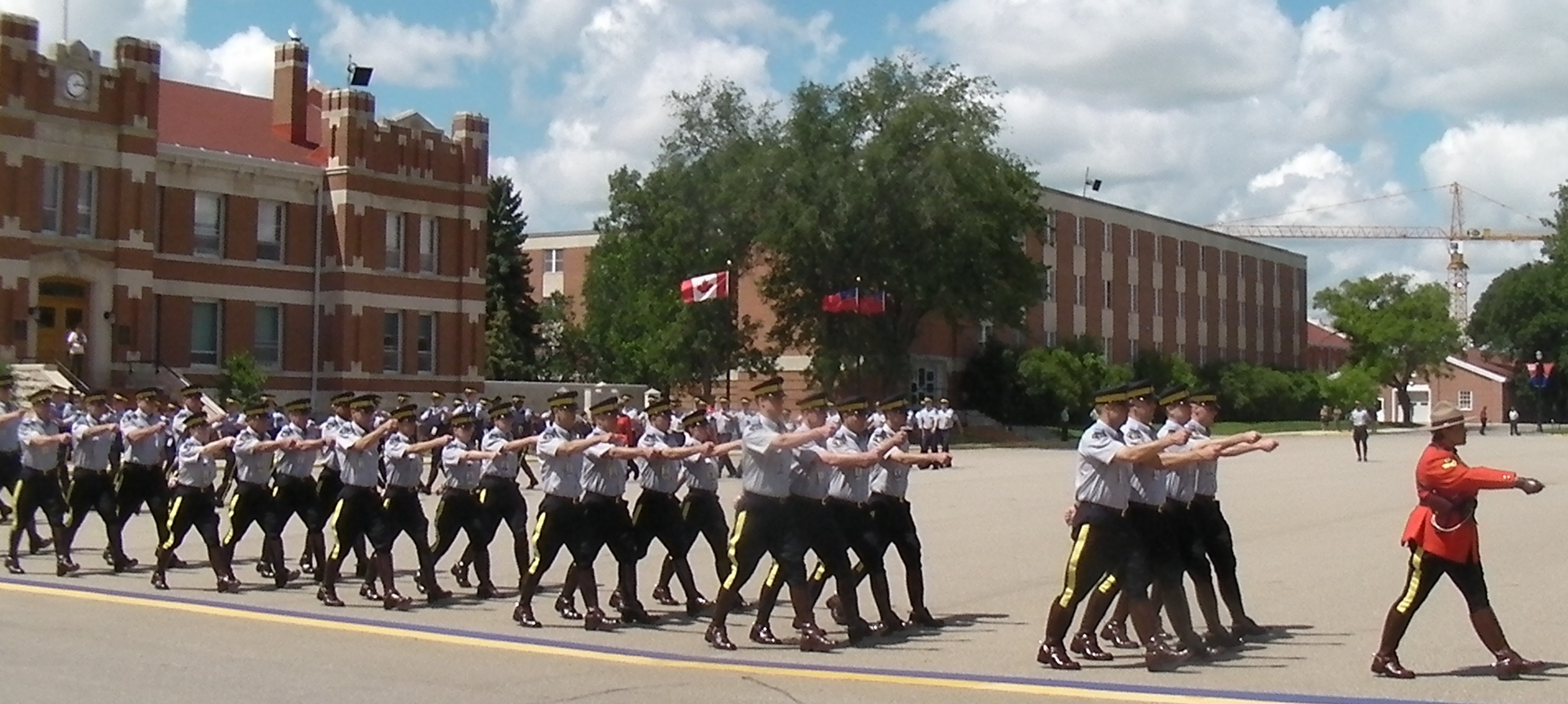Need Interview Help?
Are your interview skills holding you
back from the career you want?
It’s time to stop worrying and
show up with confidence!
Any time you are making a career decision, it can be a very stressful and overwhelming time.
What should you do?
Should you go to university/college?
Where do you see yourself in five or ten years?
This is especially true if you want to join the RCMP. It’s not only a job, it’s a lifestyle. You have to consider all of the reasons why you want to be an RCMP officer. Do you know someone who is a Police Officer? Will you have what it takes? Are you afraid that you won’t be able to handle a difficult situation?
And of course once you decide you do want to become an RCMP officer, there’s the challenge of successfully completing the application process. Do you meet the minimum requirements? Many candidates want to ask a generic question, like “Will I get in if I did …?” There is no way to know if a Recruiter would deny your application based on a generalized question. Every decision is made on a case by case basis. You simply will have to go through the process to see what the decision will be on your particular situation.
If you are considering the RCMP as a career, you should do your research first. Ensure that the RCMP culture and lifestyle is a good fit for both you and your family. Talk to other RCMP officers and get the real picture. Find out what a day in the life of a cop really looks like. Remember, this is a national police force, and as such, you could be required to move outside of your home province. Will that be good for you and your family? If, after careful consideration, you do decide that this is the right career path for you, you will need to work hard to prepare for the very lengthy RCMP Application process.

There are a number of steps that you must go through before you will be accepted as an RCMP Cadet and head off to Regina’s RCMP Depot Training Academy.
“I recommend you to the next stage in the RCMP process” – The words that all applicants wish to hear. This was made possible due to Connie’s help, dedication and attention.
Connie’s career and coaching interviewing tips gets you the right delivery and structure for the RMSI [Regular Member Selection Interview] stage. She helped me build my STAR and ARC examples and made them extraordinary which convinced the interviewer to recommend me to the next step.
Without this coaching, I don’t think I would be writing this at the moment! She is so friendly and nice to work with, this is a clear choice for any RCMP applicant.
Alex, RCMP Applicant August 2014
Essential Criteria
You must be a Canadian citizen or permanent resident who has lived in Canada for the last 10 years, and have a minimum of a Grade 12 Diploma or equivalent education. You must be fluent in English and/or French, be at least 19 years of age at time of engagement, and meet health and psychological standards. See the RCMP Essential Qualifications for a full list of qualifications. All of these steps will require a certain amount of preparation to ensure that you are successful.
“Right Fit” Interview (Formerly Regular Member Selection Interview)
The RCMP is now conducting a “Right Fit” Interview (RCMP Applicant Interview), to determine if you possess the qualities that have been identified as necessary to perform successfully as an RCMP officer. A careful analysis of the functions and duties of an RCMP Constable has been conducted, to identify the qualities, or competencies, required to do the job well. Based on this analysis, eight competencies have been identified as being required to perform the duties. The interview will determine if you meet these competencies, or qualities, and to what level.
Interview Preparation
This stage of the process will also require a great deal of preparation.
The RCMP Applicant interview is quite involved and indepth.
It is designed to assess whether you meet the following competencies?
- Developing Self
- Flexibility
- Problem Solving
- Conscientiousness and Reliability
- Meeting Client Needs
- Communication
- Teamwork
- Self Control and Composure
This portion will be conducted using two formats.
Behavioural Based Questions
The first format focuses on behavioural based questions. There is a belief that past behaviours are indicative of future behaviours. As such, you will be asked a series of behavioural based questions to demonstrate how you handled a certain situation that relates to each of the eight competencies.
There is a specific way to approach these questions. When you are asked a behavioural type question, i.e. “Tell me a time when …” your answer should be delivered like you are telling a story. Use the S-T-A-R principle.
Situation
Task
Action
Result
This can be challenging for some people. You may think it’s easy to come up with some experiences that will meet these competencies, but when it comes down to being asked the questions, more times than not the candidate just doesn’t have a good example ready. And it’s not just having an example that meets the competency, but it also has to answer the specific question that is being asked. You won’t simply be asked to tell of a time that you demonstrated good teamwork. There will be a specific question that you will be asked, which may not allow you to use the example that you have prepared.
Situational Based Questions
The situational questions are hypothetical scenarios that you will be given, and are designed to determine what you would do, what action you would take, should you find yourself in that situation. The situational questions are answered using the A-R-C principle.
Action
Reasoning
Considerations
You have to ask yourself, what are the steps that I will take to deal with this situation. And then what would I do? You have to follow through with your answer to relate all of your action.
Who would you talk to first?
Then who?
What would you do after you speak to everyone involved?
Would you engage the supervisor?
Then what?
As you can see, there are many factors to consider when approaching the situational questions. And again, you won’t know what the questions are ahead of time, so it’s hard to know how to prepare.
Can I Still Prepare?
There are ways to get ready for the interview. Again, do your research. There is a lot of information available to help you. Get a list of the eight competencies and understand their definitions. Having a full understanding of the required criteria will ensure that you choose appropriate examples. Look at all the components of each definition to ensure that you are meeting everything being assessed.
Sometimes your answers will only capture part of the information, for example, the definition for Teamwork is:
- Achieves common goals by working cooperatively with others and developing a positive work climate. Acts to facilitate the operation of teams of which he or she is a member.
There are two components to this definition. Working cooperatively and developing a positive work climate. When you choose your experience that demonstrates that you can work effectively in a team, ensure that you highlight how you meet all of the criteria.
Think about what experience you have that will speak to these eight competencies. This experience doesn’t just have to be work related. It can be volunteer experience, school, sports, etc. It can be any experience that demonstrates that you can meet the criteria. This can be particularly difficult for younger people trying to get into the force, simply because they often don’t have the depth of experience that is required.
Is Delivery of Answers Important?
Another aspect to keep in mind is that it’s not just the content of your answer that you provide that is being assessed. Your interpersonal and communication skills are also being evaluated, so you must ensure that you remain professional, confident and enthusiastic, without being overbearing and arrogant.
At the end of the day, you need to identify the best examples that will demonstrate you meet the criteria, and be able to deliver this information in a clear and concise manner. Again, this takes preparation and practice. This practice should be with someone who can provide meaningful feedback, and who has experience in conducting interviews.
Connie has been a wonderful source of information and support to me while I was preparing for the RMSI.
She helped guide me through both the Behavioural and Situational questions using a mock interview style approach. She was able to identify my strengths and weakness and provide advice on how to improve.
I was not only able to feel more confident with attending the RMSI, but I was also able to pass the RMSI and move onto the next phase of the RCMP applicant process and towards my goal of becoming an RCMP member. Thank you so very much Connie, for your guidance, supportive nature, expertise and patience.
Radha, RCMP Applicant, September 2014
The Road to Depot
There are really two parts to this journey. First, you must decide if this is the right career path for you. And second, if this is the right choice for you, you must be prepared to take the long journey required to become an RCMP Cadet.
About Connie Clace, CPC
 With 14 years of RCMP experience, working at the Detachment Level, participating in numerous projects, as a Civilian Manager and in Human Resources, I am very familiar with the RCMP culture. As a Certified Career Coach, I can work with you to help you determine if this is in fact a good career path for you.
With 14 years of RCMP experience, working at the Detachment Level, participating in numerous projects, as a Civilian Manager and in Human Resources, I am very familiar with the RCMP culture. As a Certified Career Coach, I can work with you to help you determine if this is in fact a good career path for you.
If it is, we can continue to work together to perfect your interviewing skills, and to identify the experience that you have that will meet the eight competencies. If relevant experience is a concern, we can discuss ways that you can enhance this aspect. Together, we’ll examine those qualities that you do have, and identify the gaps that will keep you from getting through the interview. We’ll talk about the steps you can take to gain this much needed experience, i.e. volunteer work, job placements, etc.
To help hone your interviewing skills, we will practice with sample questions to ensure that you are delivering a good answer and arrive at the interview fully prepared.
For your convenience, we can work together in person if you are in the Halifax area or via Skype for any other Canadian location.
Investing in this service will go a long way to ensure that you are fully prepared and to maximize this opportunity.
As an alternative option, I have put my best advice, exercises and tips into a comprehensive workbook that you can use to prepare for the interview on your own time, for less than half the price of a one-on-one session. This workbook can be used in isolation or in conjunction with a full coaching session. Follow this link to learn more.